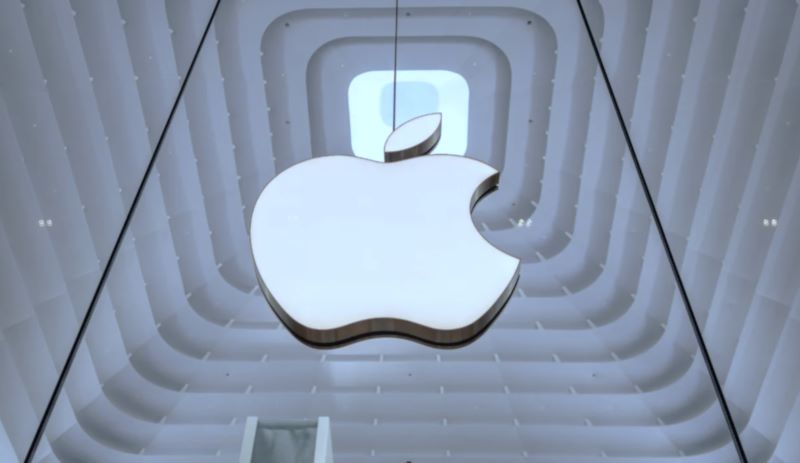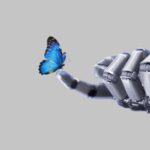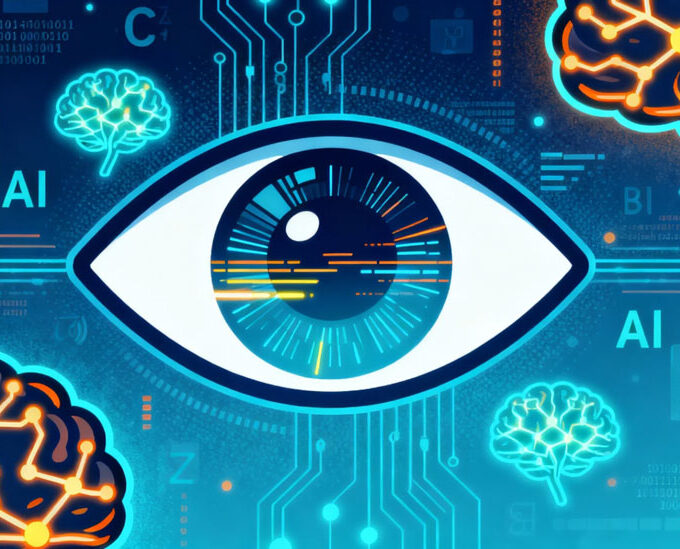On July 7, 2025, a bombshell tech news spread like wildfire: Ruoming Pang, the core leader of Apple’s foundational models team, is set to leave for Meta’s Super Intelligence team. This news, like a stone thrown into a calm lake, immediately created waves, drawing widespread attention and heated discussions across the tech industry.
Apple’s AI Woes: The Departure of a Core Figure Causes Shockwaves
Ruoming Pang has long been the cornerstone of Apple‘s AI endeavors. In 2021, he made the bold decision to leave Alphabet (Google’s parent company) and join Apple, where he took on the responsibility of leading a team of about 100 people working on foundational models. Over the years, his team has heavily invested in developing Apple’s large language models, and their results have been deeply integrated into many core functions of Apple products. Whether it’s the smart summaries in iPhone emails or the fun Genmoji emoji generation, the technology behind these features relies on models developed by Pang’s team.
More importantly, these foundational models were originally expected to be the core driving force behind the major upgrade of Siri scheduled for 2026. This project is crucial to Apple’s AI strategy and is seen as a “make or break” moment for the company’s future in the AI era.
Pang’s sudden departure, however, is a heavy blow to Apple’s AI development. Upon the news breaking, morale within Apple’s foundational models team quickly plummeted. Sources close to the matter indicate that several key engineers are privately discussing the possibility of leaving Apple to follow Pang to Meta or other competitors. If this chain reaction grows, the years of research and technological advantages Apple has built in AI could be at risk of being gradually eroded. Moreover, there has been increasing internal debate at Apple about whether to abandon self-developed models and instead rely on third-party models from companies like OpenAI or Anthropic to drive the next version of Siri. This discussion alone has already greatly shaken the team’s confidence, and now, with the departure of a core leader, the future direction of the team appears even more uncertain.
Meta’s “Super Intelligence” Ambition: Attracting Talent with Huge Sums to Build a Dream Team
Meta’s successful poaching of Ruoming Pang is far from coincidental, but rather a critical part of its strategic plan for a “Super Intelligence” initiative. In July, Mark Zuckerberg announced the creation of the “Super Intelligence Lab” (MSL), with the clear goal of developing AI systems that surpass human abilities. To achieve this grand vision, Meta has shown unprecedented determination and financial commitment in recruiting top-tier talent.
When it comes to compensation, Meta has been exceptionally generous, offering Pang and other leading figures annual salaries in the tens of millions of dollars—far beyond the pay of engineers at Apple. Besides Pang, Meta has also been aggressively recruiting talent from across the globe, including numerous top researchers from OpenAI, Anthropic, and other companies. For example, Shuchao Bi, a core developer of the GPT-4o speech model, and Jiahui Yu, an expert in multimodal processing, have joined Meta, significantly enhancing its AI team’s capabilities. Moreover, Meta recently hired Yuanzhi Li from OpenAI and Anton Bakhtin from Anthropic, further bolstering its technical development strength.

In order to attract even more outstanding talent, Zuckerberg himself has been deeply involved in the recruitment process. He frequently hosts potential candidates in his luxurious homes in Silicon Valley and Lake Tahoe, personally outlining Meta’s grand plans for AI development and showcasing the company’s unwavering commitment and ample resources. Zuckerberg even personally contacts targeted candidates to express Meta’s high regard and sincere invitation. Through these efforts, Meta has successfully attracted numerous AI heavyweights, including Scale AI founder Alexandr Wang, gradually forming a world-class AI research team.
AI Talent War: The Industry Landscape May Be Rewritten
Pang’s departure is not an isolated incident, but rather a reflection of the harsh reality in the AI industry, where “talent is more precious than models.” In this rapidly evolving field, top talent with core technology knowledge and rich experience has become the target of fierce competition among tech giants. According to industry insiders, salaries for top AI researchers have skyrocketed in recent years, with compensation packages growing from several million dollars three years ago to tens of millions of dollars today. In addition to these high salaries, there are often generous stock options and exclusive research resources to ensure that these talents can fully contribute their expertise to the company.
This intense talent competition has led to a series of chain reactions in the industry. For example, OpenAI, under pressure from Meta’s ongoing poaching efforts, has launched an “AGI success option” plan, promising that core researchers will receive 5% of the company’s profits (around $8 billion) if general artificial intelligence is achieved by 2030. For smaller labs, however, the situation is much bleaker. With limited resources, they are often powerless against the high-paying offers from the giants. In one case, a leading lab lost its entire core team to poaching, rendering its previous $200 million investment in R&D futile and causing the entire project to stall—an unfortunate situation.
For many AI researchers, it has become common to receive an average of 4.7 headhunting emails per week, with external offers constantly pulling their attention away from their research work. This frequent disruption is contributing to a trend of fragmented innovation within the industry.
From a more macro perspective, the intense battle for AI talent between Meta and Apple reflects a collision of two distinct technological development paths. OpenAI has been trying to maintain its technological leadership through a closed-model strategy, creating a technological moat that is hard to cross. Meanwhile, Meta has taken a different route by advocating for open-source models, such as the Llama series, and attracting global developers to optimize and build upon these models. Meta’s goal is to break OpenAI’s technical monopoly and reshape the AI industry landscape. In this quiet war, companies that can gather and cultivate top talent will undoubtedly have the upper hand, as talent is the key factor in determining whether models can continue to iterate and whether breakthroughs in technology are possible.
For ordinary users, the intense competition between tech giants in the AI field may lead to more benefits. Meta’s push for open-source models could accelerate the popularization of generative AI technologies, enabling more people to enjoy the convenience and fun that advanced AI brings. Meanwhile, if Apple can adjust its strategy effectively and transform in response to this crisis, leveraging its strengths in hardware design and user experience, it may still be able to introduce innovative AI applications that cater to user privacy needs.
However, we must also recognize that as AI talent and resources become increasingly concentrated in the hands of a few tech giants, the conflict between the ideal of technological inclusiveness and the reality of oligarchic monopolies is becoming more pronounced. If this trend is not effectively curtailed, the entire industry’s innovation vitality and healthy development could be severely constrained.
Looking ahead, we can reasonably expect that as the AI race intensifies, similar “sky-high talent poaching” events, like the one involving Ruoming Pang, will occur more frequently. Each talent shift could become a key variable in rewriting the industry’s landscape. The future direction of the entire AI industry will gradually become clearer through these top-tier professionals’ choices, and we will be watching closely, awaiting developments.












